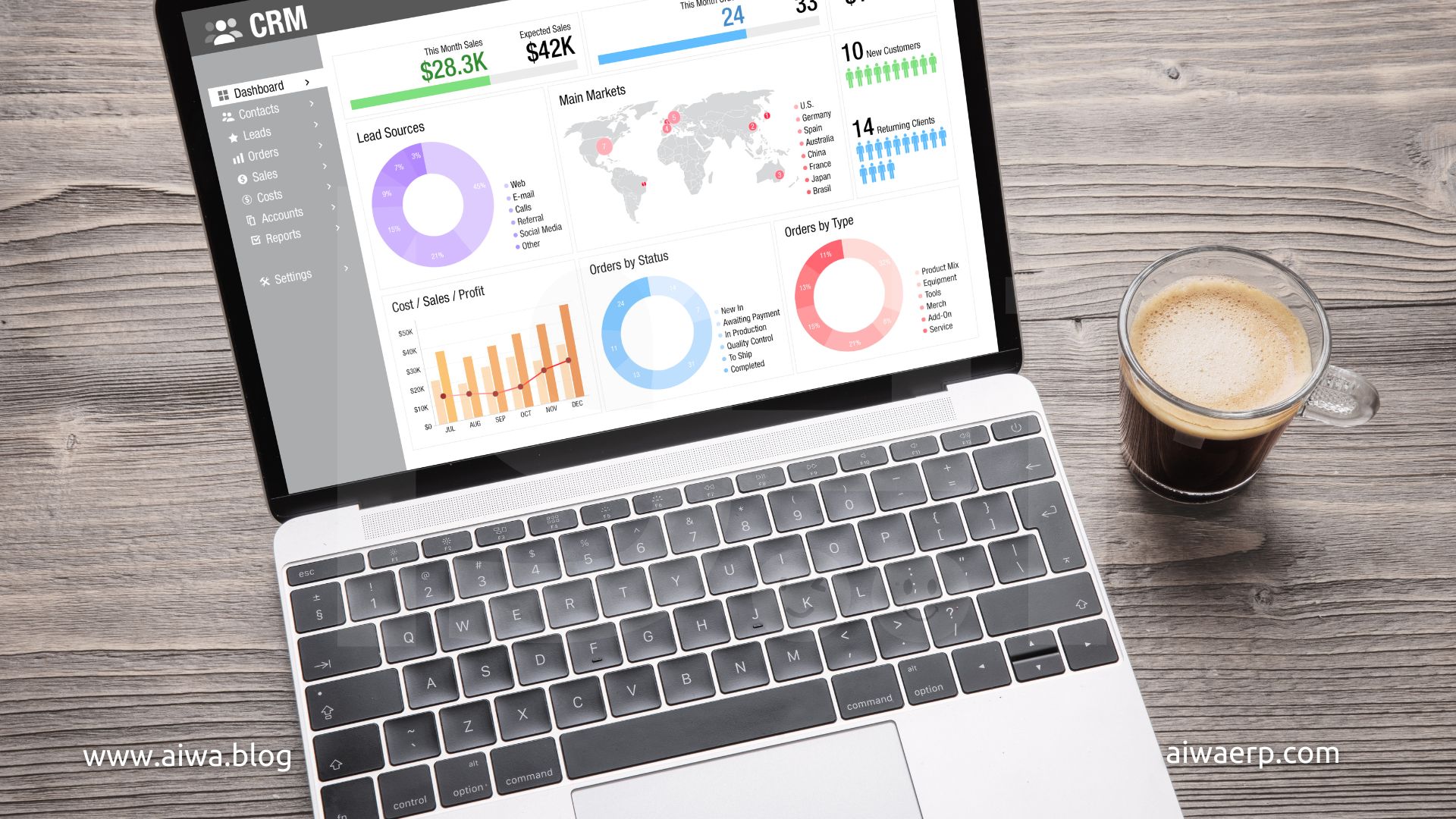In today's fast-paced business world, efficiency and organization are key to success. Many businesses have found the solution to these challenges by adopting Enterprise Resource Planning (ERP) software. But transitioning to ERP can seem daunting. Fear not! This blog post will guide you through the process and help you make the switch smoothly and stress-free.

Understanding the Need for ERP:
ERP systems are designed to streamline and integrate various business processes, such as finance, inventory management, and human resources. Before making the switch, it's crucial to understand why your organization needs ERP. Analyze your current pain points and inefficiencies to identify the areas where ERP can make the most significant impact.
Consider the bottlenecks in your operations, data silos, and the difficulty in generating accurate reports. ERP can address these issues by centralizing data, automating tasks, and providing real-time insights, allowing your organization to make informed decisions.
Setting Clear Goals and Objectives:
A successful transition to ERP begins with setting clear goals and objectives. What do you aim to achieve with ERP implementation? Are you looking to reduce operational costs, improve customer satisfaction, or enhance supply chain management? Defining your objectives will provide a roadmap for the transition.
Engage key stakeholders in this process to ensure alignment with the organization's strategic vision. Clearly defined goals will help you measure the success of your ERP implementation and keep your team focused throughout the transition.
Choosing the Right ERP System:
Selecting the right ERP system is a critical step. Conduct thorough research, evaluate different ERP vendors, and consider factors like scalability, industry-specific features, and user-friendliness. Choose a system that aligns with your organization's needs and long-term growth plans.
Don't rush this decision; take the time to demo ERP software and consult with experts who can provide valuable insights. The right ERP system will be a valuable asset for years to come.
Planning and Implementation:
A well-structured implementation plan is the key to a smooth transition. Divide the implementation into manageable phases, assign responsibilities, and establish a realistic timeline. Training your staff and providing ongoing support are essential elements of the implementation process.
During the transition, anticipate challenges and be prepared to adapt. Continuous communication and feedback loops with your team will help address any issues promptly, reducing stress and resistance to change.
Testing and Optimization:
After the initial implementation, thorough testing is crucial to identify any glitches or areas that require fine-tuning. Test the system extensively with real-world scenarios to ensure it meets your objectives. Once live, continue to monitor and optimize your ERP system to maximize its benefits.
Regularly review your processes and ERP usage to identify areas for improvement. Over time, your ERP system will become an integral part of your organization, providing efficiency and agility.
Elevating Your Business with ERP: A Stress-Free Journey:
- Streamlined Operations: ERP systems integrate various business processes, helping streamline operations across departments. This leads to greater efficiency as tasks are automated, reducing manual data entry and the risk of errors.
- Improved Data Accuracy: With a centralized database, ERP ensures data consistency and accuracy. This not only enhances decision-making but also reduces the chances of costly mistakes.
- Real-Time Insights: ERP provides real-time data and analytics, allowing you to make informed decisions promptly. This agility is crucial for adapting to changing market conditions and staying competitive.
- Enhanced Customer Service: ERP systems often include CRM (Customer Relationship Management) modules, enabling businesses to better manage customer interactions, track sales leads, and provide superior customer service.
- Cost Savings: By optimizing processes and reducing inefficiencies, ERP can lead to significant cost savings in the long run. You can better allocate resources and identify areas where you can cut unnecessary expenses.
- Scalability: ERP systems are designed to grow with your business. They can adapt to changing needs and accommodate increased data volumes, making them suitable for both small startups and large enterprises.
- Compliance and Security: Many ERP systems include robust security features and compliance tools to help you meet industry regulations and protect sensitive data.
- Enhanced Reporting: ERP software often comes with advanced reporting and business intelligence capabilities. This enables you to create customized reports and gain deeper insights into your business performance.
- Inventory Management: Efficient inventory management is critical for businesses. ERP systems help you maintain optimal inventory levels, reducing carrying costs and preventing stockouts or overstock situations.
- Employee Productivity: By automating routine tasks and providing easy access to information, ERP systems can boost employee productivity. This allows your team to focus on more strategic and value-added activities.
- Global Reach: For businesses with international operations, ERP systems support multi-currency, multi-language, and multi-location capabilities, facilitating global expansion.
- Competitive Advantage: Implementing ERP can provide a competitive advantage. It allows you to respond quickly to market changes, offer better customer service, and optimize your supply chain.
- Data Security: ERP systems typically have robust security measures in place to protect your sensitive business data from cyber threats and unauthorized access.
- Long-Term ROI: While implementing ERP may require an initial investment, the long-term return on investment (ROI) is often substantial due to increased efficiency, cost savings, and revenue growth.
- Business Growth: As your business grows, ERP can scale along with it, ensuring that your systems can handle increased data and transaction volumes without major disruptions.

Conclusion:
Switching to ERP doesn't have to be a stressful endeavor. With careful planning, clear objectives, and the right ERP system, your organization can experience a seamless transition that brings increased efficiency, improved decision-making, and a competitive edge.
Whether you're a small business or a large enterprise, embracing ERP is a strategic move that can propel your organization toward success in the digital age. Make the switch today and reap the benefits of a stress-free ERP transition.
========
Transform Your Business, Unleash Efficiency: Experience the Power of ERP Software.
AiwaERP Your Ultimate Business Partner for Success, https://aiwaerp.com/
#aiwablog #AiwaGPT #ERPSoftware #BusinessAutomation #EfficiencyBoost #DigitalTransformation #EnterpriseSolutions #StreamlineOperations #ERPIntegration #ERPImplementation #CloudERP #ERPforBusiness #BusinessSolutions #ProductivityTools #DataManagement #ERPBenefits #ERPSystem #ERPPlatform #SMBERP #ERPConsulting #ERPProvider #ERPExperts
_1056.png)


_1167.jpg)
_105660x60.png)
_1073.jpg)
_1076.jpg)
_1077.jpg)

_1306500x270.jpg)
_1255500x270.jpg)
_1250500x270.jpg)
_130660x60.jpg)
_125560x60.jpg)
_125060x60.jpg)
_133160x60.jpg)
Write your comment
Cancel Reply